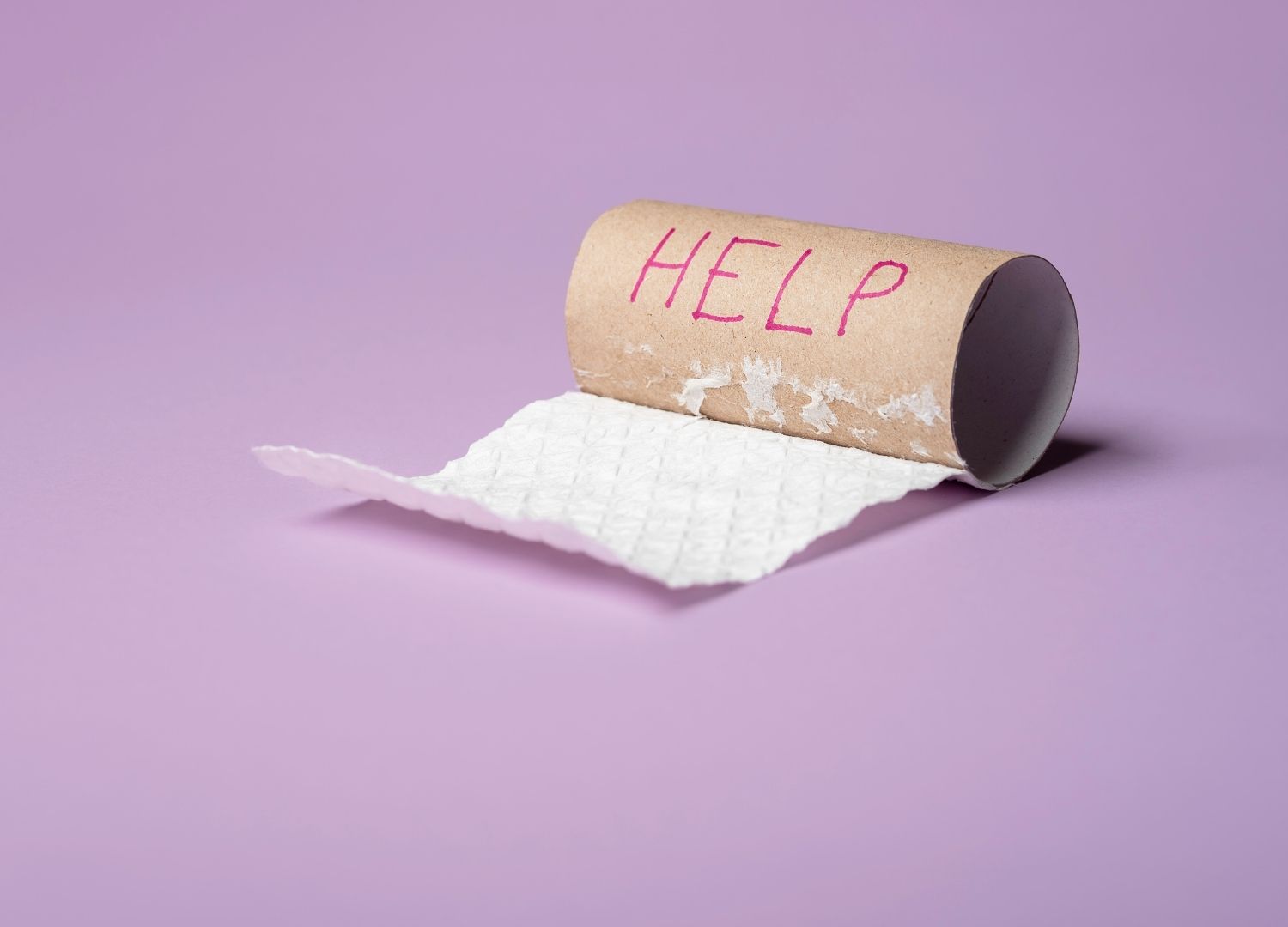Constipation during pregnancy – it’s not the most glamourous topic, but it’s an important one. It’s vital to have at least one effective bowel motion every 24 hours to help rid the body of toxins, encourage the growth of good bacteria and help keep the intestinal lining free from inflammation and irritation.
Three out of four pregnant women experience either constipation or digestive disturbance when expecting. But don’t worry – it won’t harm your baby!
What Causes Constipation During Pregnancy?
Increasing amounts of the hormone progesterone when you’re pregnant helps to keep everything relaxed – including your bowel. When muscles in the bowel relax, food takes longer to pass through your body. The upside is that there’s more time for nutrients to be absorbed into the bloodstream and get to your baby. The downside is constipation. As your pregnancy progresses, your growing baby can press onto the bowel and intestines which can further exacerbate constipation during pregnancy.
Can Fibre Help Improve Constipation During Pregnancy?
Fibre is essential for a healthy digestion. As a fertility and pregnancy naturopath, I see the positive effects of fibre on my patients every day.
Soluble fibre carries water and forms a gel, which helps to soften stools. This allows it to pass easily – preventing haemorrhoids. Examples of this type of fibre include fruit, vegetables, oats, linseed, peas, beans and lentils.
Insoluble fibre or ‘roughage’ passes through the digestive tract and is fermented by good bacteria to produce short chain fatty acids. This help keep the gut wall healthy and prevent leaky gut. Foods such as wholegrains, fruit and vegetable skin, nuts and dried beans contain insoluble fibre and work to bulk up the stool and increase the frequency of a bowel motion.
A combination of both soluble and insoluble fibre is essential for good bowel health during pregnancy.

Staying Hydrated During Pregnancy
Fibre can’t function without fluid, so staying hydrated is essential. Pregnancy increases the demand for fluid due to the increase in blood volume. Make sure 2-3 litres of filtered water is a regular, daily habit. I like to add lemon, lime or cucumber to the water to help it taste a little better. Warm water with lemon first thing in the morning can also help to get things moving. Watch your coffee and tea intake when pregnant, as caffeine is dehydrating and can contribute to hard stools.
Top Tips To Stop Constipation When You’re Pregnant
- Try adding 1-2 tablespoons of LSA (ground linseed, flaxseed and almonds), or 1 tablespoon chia seeds to your breakfast or oats. Let them soak in before eating. Top with prunes (optional).
- 1-3 stewed or soaked prunes, or 1 cup prune juice can have a laxative effect.
- One heaped teaspoon flax meal, psyllium husks or slippery elm powder in a glass of apple or pear juice, drink immediately and follow with an additional glass of water.
- Massage the abdomen in a clockwise direction with good quality cold pressed extra virgin olive oil, or warm organic coconut oil.
- Practice deep diaphragmatic breathing rather than straining.
- Sitting on the toilet at a similar time very day can help to train the bowel to become regular.
- Physical activity helps keep your bowel moving. Some great pregnancy exercise options are walking, swimming and pregnancy yoga.
- Bitter foods such as dandelion leaves, endive and radicchio stimulate digestive enzymeS. It’s great to have a mix of organic lettuce leaves in the fridge and add to lunch and dinner, with 1-2 tablespoons of good quality extra virgin olive oil and a splash of lemon juice.
- Make the switch to healthier wholegrains such as oats, brown rice, rye and spelt. This will lessen your chances of becoming constipated when pregnant.
- Eat raw, unsalted nuts and seeds, and fruit with skin on. For example, brown pears, under ripe bananas, apples, figs and kiwi fruit (with or without the skin).
- Reduce animal and saturated fats and focus on essential fatty acids such as avocado, tahini, nut butters, and chia seeds added to oats or made into a pudding.
Other Causes of Constipation During Pregnancy
Iron supplements are commonly prescribed in pregnancy. Unfortunately, this type of iron can cause dry, hard, dark stools. If an iron supplement is recommended by your health practitioner, use one containing a well absorbed form of iron such as bisglycinate or amino acid chelate.
Eating too fast can be a major cause of constipation. Ensure the eating environment is relaxed, and chew food thoroughly whilst breathing slowly. Smaller, more frequent meals are much easier to digest – especially in the later stages of pregnancy. Avoid overeating. Filling up until you feel 80% full is the general rule.
Should I Take Laxatives During Pregnancy?
When you are feeling constipated during pregnancy, it’s normal to want relief as soon as possible – but you should avoid over the counter commercial laxatives. They can cause more harm than good. Laxatives when you’re pregnant can irritate the gut which in turn can irritate the uterus. This can cause painful Braxton Hicks tightening, and can create a state of panic. Some are dehydrating, leaving you with an electrolyte and nutrient imbalance, and some can make the problem worse by reducing the tone of the bowel.
Always consult a trusted health professional for further advice as required.
If you’d like more information regarding your specific needs or would like to know how naturopathy for pregnancy could help you, book an appointment today.
